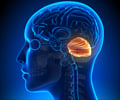More specific drugs can be effective in treating the cognitive symptoms of Alzheimer's disease, suggested a new study in mouse model.

‘Treatment with the M1-selective medications reversed memory deficits and profoundly extended the lifespan of the diseased mice.’





In December 2016 issue of the JCI,
work led by Andrew Tobin at the University of Leicester tested two
drugs that specifically target the M1 muscarinic acetylcholine receptor
in a mouse model of neurodegeneration and discovered that the treatments
had promising effects. The mouse model showed many hallmarks of human Alzheimer's disease. Treatment with the M1-selective medications reversed memory deficits and profoundly extended the lifespan of the diseased mice.
These findings support the concept that more specific drugs can be effective in treating the cognitive symptoms of neurodegenerative disease. Future work is needed to determine whether these potential medications are effective in humans, and whether the improved targeting actually leads to fewer side effects.
Source-Eurekalert










